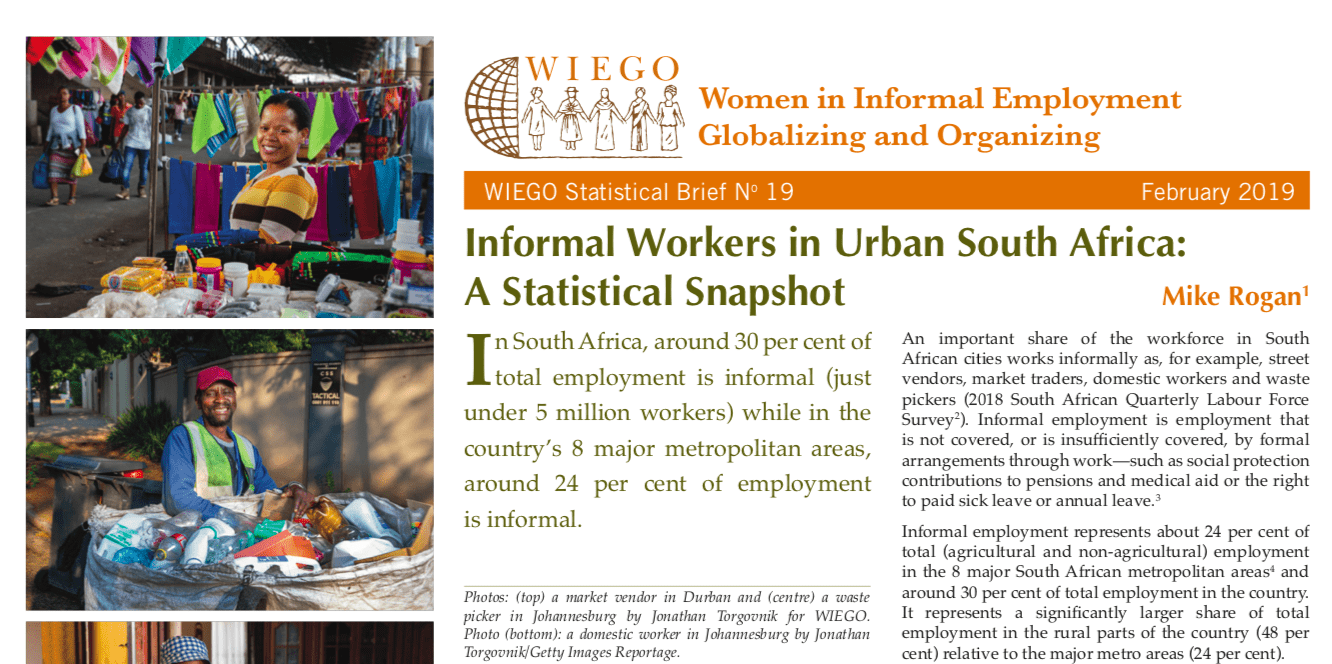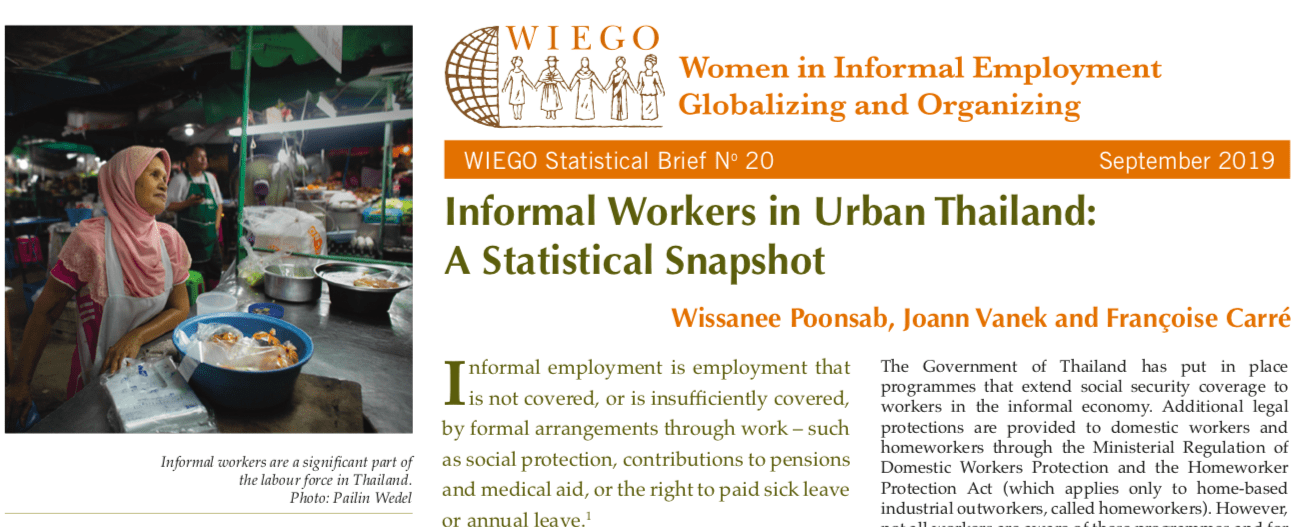
“Statistics in the hands of activists have power.” –Ela Bhatt, founder of the Self-Employed Women's Association of India (SEWA)
This quote is a guiding principle for the WIEGO Statistics Programme and for the priority given to statistics by WIEGO. The Programme works to ensure that official statistics – at the country, regional and international levels – reflect informal workers, and that these data are easily accessible to a wide range of users. Statistics are essential in making visible the size and significance of the informal economy and the situation of those working in it.
Statistics are essential in making visible the size and significance of the informal economy and the situation of those working in it.
However, there are challenges in developing statistics on informal employment and its workers. These workers are employed in arrangements that tend to be more difficult to measure, since many work in the home and in shifting places of work. Further, the main classifications are often not sufficiently detailed or the detailed classifications are not used so that these types of work cannot be identified.
Often, the sample size is not adequate in providing reliable data on categories of workers at the city level, which is often the level needed for advocacy. And the groups of workers of concern to WIEGO are not tabulated in the standard statistical publications. WIEGO is working on many fronts to address these challenges.
In response to the needs of local advocates and the WIEGO Focal Cities initiative, the Statistics Programme is working with local consultants to prepare a set of Statistical Briefs. The briefs will provide key indicators of informal employment and key categories of informal workers at the geographic levels of main city or cities, urban and national in a simple and easily accessible format. The main categories of workers included are domestic workers, home-based workers, market traders, street vendors and waste-pickers.
Excerpts from the introductions to the two briefs now available:

Informal Workers in Urban South Africa: A Statistical Snapshot, WIEGO Statistical Brief no 19
By Mike Rogan
In South Africa, around 30 per cent of total employment is informal (just under 5-million workers) while in the country’s 8 major metropolitan areas, around 24 per cent of employment is informal.
Informal employment represents about 24 per cent of total (agricultural and non-agricultural) employment in the 8 major South African metropolitan areas4 and around 30 per cent of total employment in the country. It represents a significantly larger share of total employment in the rural parts of the country (48 per cent) relative to the major metro areas (24 per cent). Read the full Statistical Brief.


Informal Workers in Urban Thailand: A Statistical Snapshot, WIEGO Statistical Brief no. 20
By: Wissanee Poonsab, Joann Vanek, Françoise Carré
Informal employment continues to be an important share of the labour force in Thailand and in its cities.
While informal employment represents around 28 per cent of employment in Bangkok, it accounts for 42 per cent in urban Thailand and over half (56 per cent) of all employment in Thailand, (see below). There is little difference between women’s and men’s rates of informal employment in each geographic region. Almost all agricultural employment is informal: around 92 per cent in both Thailand and urban Thailand and 87 per cent in Bangkok. Women’s rates of informal employment in agriculture are higher than men’s in each geographic area, with the greatest difference in Bangkok, where all of women’s employment in agriculture is informal compared to only 85 per cent of men’s. Read the full Statistic Brief.

Briefs for Ghana and Senegal will follow. Sign up for WIEGO’s newsletter here to hear when they are available.
Read more about WIEGO’s pioneering Statistics Programme and access a full list of Statistical Briefs.
Feature photo: Lucy Mokhele's physically demanding workday in a private home involves cleaning and cooking for her elderly employer and other family members. Her work is now statistically visible in our newly released Informal Workers in Urban South Africa. Credit: Jonathan Torgovnik / Getty Images Reportage
Related Posts
-
Informal Economy Topic
-
Region
-
Language
